Flipping out for STEMI
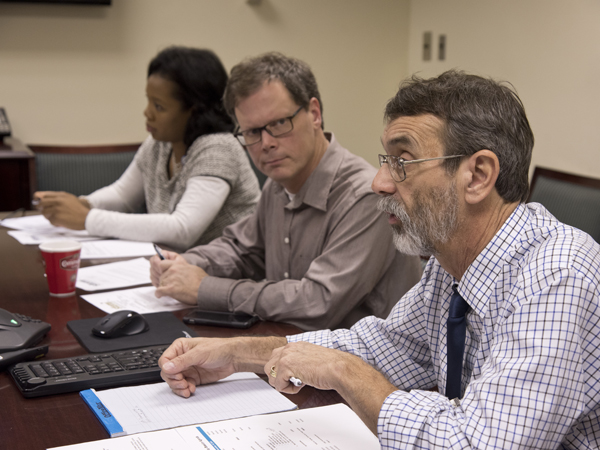
Published in News Stories on November 21, 2016
In a hospital, a STEMI is a severe heart attack. But at the University of Mississippi Medical Center and in Mississippi high schools, Dr. Rob Rockhold is giving STEMI a new meaning: Science Teaching Excites Medical Interest.
“With STEMI, our aim is to train teachers to make them more fluent in techniques to engage their students directly,” said Rockhold, deputy chief academic officer and professor of pharmacology and toxicology.
Rockhold, the principal investigator for STEMI, and his collaborators received a five-year, $1.1 million award from the National Institutes of Health's Science Education Partnership Award program. SEPA funds innovative science, technology, engineering and mathematics education initiatives.
STEMI will help science teachers from eight high schools create “flipped” classroom-style video lessons on diabetes, obesity and nutrition. The long-range goal is that the modules will increase the students' health literacy and “contribute to solving major Mississippi health issues,” Rockhold said.
Flipped learning is a 21st-century teaching method that places the first stage of learning, remembering facts, into the hands of the students. Teachers might assign videos or online tools for their pupils to study and review before class. During class time, the teacher can then engage the students in learning activities that apply their new knowledge, rather than lecture at them.
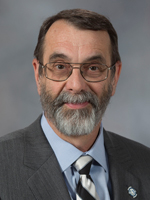
Rockhold
“It permits teachers to lead their students to a deeper understanding of the subject matter while in the classroom,” Rockhold said.
Here's an example. An anatomy and physiology class uses an interactive drag-and-drop exercise to learn the names and locations of the human bones. The students come to class the next day and find a disarticulated skeleton laid out on a table. If they did the lesson, they can already differentiate between the tibia and fibula.
Denise Thibodeaux, a biology instructor at Cathedral High School in Natchez and Copiah-Lincoln Community College, has used this and other flipping techniques in her classroom.
“It's perfect for teaching biomedical and health science lessons,” said Thibodeaux, one of eight experienced educators who will mentor early- and mid-career teachers as they prepare their own video modules.
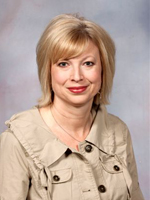
Thibodeaux
Thibodeaux has made a flipped-learning video before - it compares protein synthesis to following a recipe copied from a cookbook - and is excited to create more through STEMI.
“I hope to become more confident in my ability to create these kinds of modules and enhance my teaching and professional development,” she said.
Thibodeaux, Rockhold and Dr. Donna Sullivan, associate professor of medicine and co-principal investigator, presented on STEMI at the Mississippi Science Teachers Association meeting last month in Biloxi. Thibodeaux said that the flipped learning methods intrigued her fellow teachers.
Rockhold said the SEPA reviewers also had high praise for STEMI, particularly their plan to use UMMC's established networks to implement and grow the program.
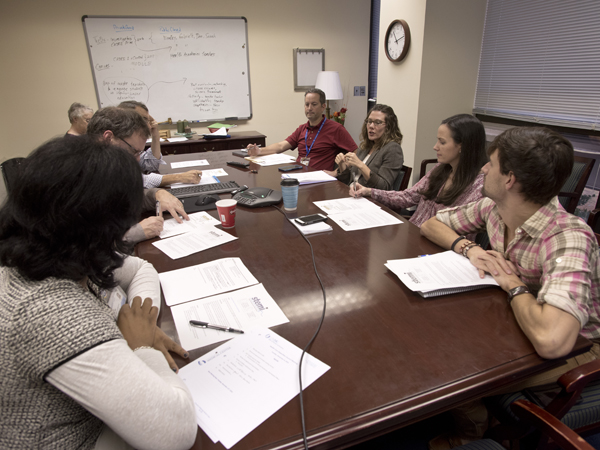
STEMI investigators attend a planning meeting.
“We are building on our 25 years of experience with Base Pair,” Rockhold said, a program that introduces students at Murrah High School in Jackson to the biomedical sciences. Thibodeaux and the other experienced teachers have all participated in Base Pair or one of its corollary programs, Student Oriented Academic Research and the Rural Biomedical Initiative.
In addition, STEMI hopes to use UMMC's Center for Telehealth network to distribute the flipped classroom modules.
“Our ultimate hope is to bring STEMI statewide,” Rockhold said.
UMMC's clinical anatomy graduate students will be involved in STEMI through a partnership with the high school teachers.
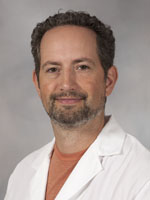
Notebaert
“The teachers will benefit from the content knowledge of the clinical anatomy students in various science topics,” said Dr. Andrew Notebaert, assistant professor of neurobiology and anatomical sciences and STEMI co-investigator. In turn, he said, the “students will benefit from the teacher's knowledge of teaching and content delivery.”
“This will be a reciprocal learning experience,” Rockhold said.
Likewise, STEMI itself will be a learning experience. As an education research project, it will study how flipped-classroom training improves teachers' professional practices and what competencies teachers need to do it well.
“Teachers need technical skills, but also need pedagogical skills,” said Dr. Marie Barnard, director of the Center for Educational Research and Evaluation at the University of Mississippi and STEMI co-investigator. “We are asking the question, 'What are those skills?”
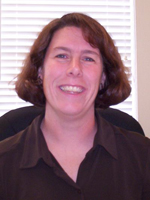
Barnard
“And, there isn't a clear understanding yet of how flipped classroom learning can help students engage in health sciences,” Barnard said.
Thibodeaux, an educator for more than 20 years, hopes STEMI will help make her students medically literate citizens.
“When these students are voting and making the rules for our society, they will have more knowledge,” she said.
“Education is a strong determinant of health,” Rockhold said. “We will help fulfill UMMC's health-care mission by improving science education in our state.”


